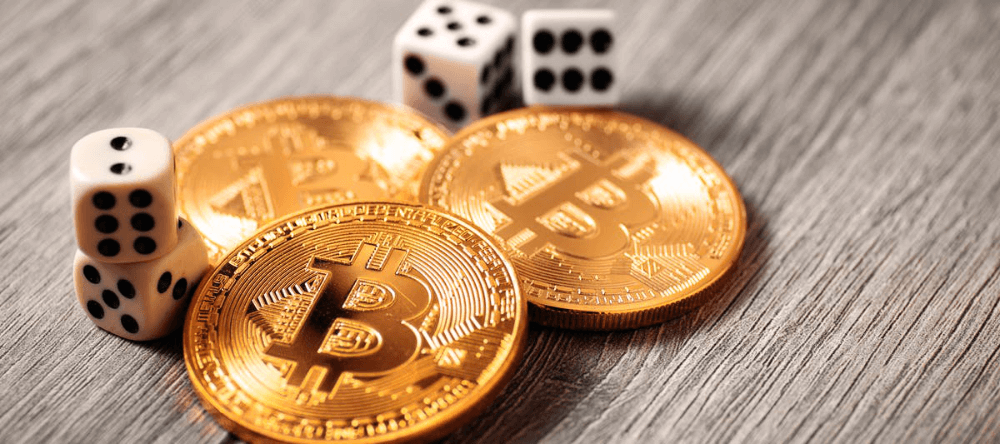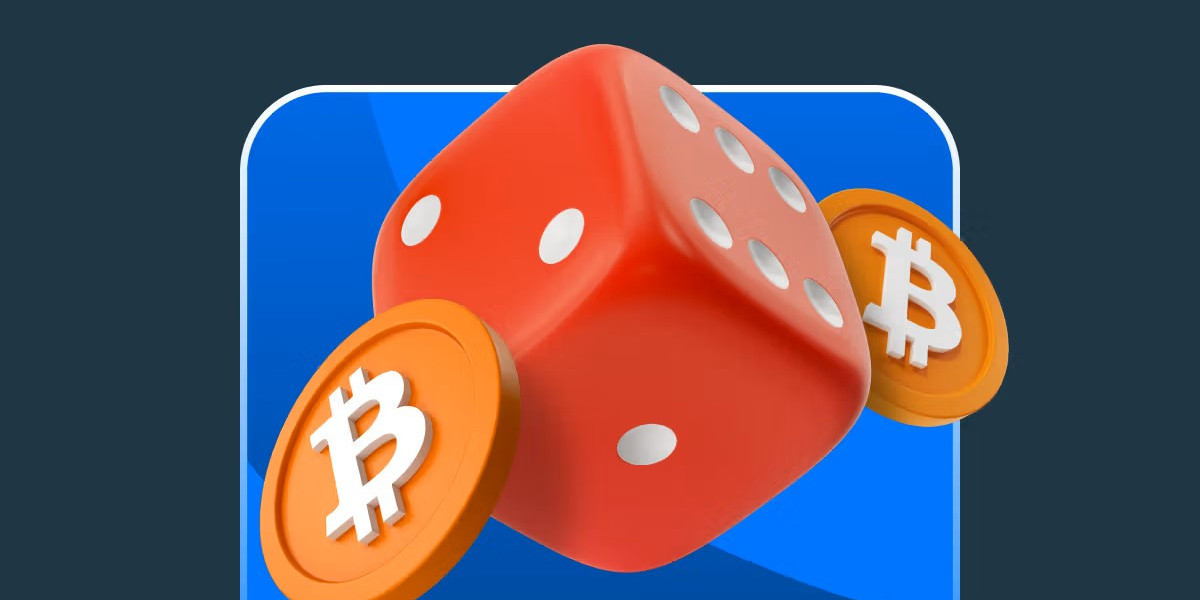What began as one of the simplest forms of crypto gambling has turned into a sophisticated, data-driven, and community-powered experience. Players today don’t just roll virtual dice — they interact with provably fair algorithms, blockchain ecosystems, and tokenized reward systems that redefine how online gaming works.
As blockchain technology matures and Web3 becomes more mainstream, dice games are expected to be among the biggest beneficiaries of these innovations. Platforms like WinDice — one of the best bitcoin (crypto) casinos — are already pushing the boundaries by integrating transparent systems, social elements, and decentralized finance principles. Let’s explore the major trends shaping the future of bitcoin dice and what players can expect next.
The Rise of On-Chain Gaming and True Decentralization
In the early days of crypto gambling, dice games were largely off-chain, meaning that while they accepted Bitcoin, the outcomes were generated and stored by centralized servers. Players had to rely on the casino’s promise of fairness.
Now, with the development of smart contracts and Layer 2 networks, on-chain dice gaming is becoming the new standard. Every roll, bet, and payout can be executed directly on the blockchain — visible, verifiable, and immutable.
Decentralized dice platforms use self-executing code to ensure that no human or intermediary can interfere with results. This move toward trustless gaming means that the casino becomes a facilitator rather than a controller, giving players unprecedented confidence in fairness and transparency.
As transaction costs and blockchain speeds improve, more casinos are expected to transition to fully on-chain models — ensuring that provably fair isn’t just a buzzword but the foundation of every gaming interaction.
Layer 2 Networks and Lightning-Fast Gameplay
Speed has always been critical for dice enthusiasts. The thrill of rolling multiple bets per minute is part of what makes btc dice so engaging. However, traditional Bitcoin transactions can be slow and expensive, especially during network congestion.
Enter Layer 2 scaling solutions, such as the Bitcoin Lightning Network and other sidechains. These technologies enable instant microtransactions at minimal cost, making high-frequency gaming viable without sacrificing security.
Imagine being able to place dozens of bets per second, all confirmed instantly and settled directly on your wallet without waiting for blockchain confirmations. That’s the direction many forward-thinking platforms are already moving toward. Casinos like WinDice are exploring these scalable systems to create frictionless gaming environments where speed, security, and user experience align perfectly.

Integration of Tokenomics and Player Incentives
The next generation of dice platforms will go far beyond simple betting. Expect to see integrated token economies — where players earn native utility tokens for participation, referrals, or consistent activity. These tokens may be traded, staked, or used to unlock higher tiers of bonuses and privileges within the ecosystem.
For instance, regular players could receive dividends from the platform’s revenue pool or vote on community decisions such as payout structures or new feature implementations. This gamified economy makes the player not just a participant but a stakeholder in the casino’s success.
WinDice and other industry leaders are already experimenting with hybrid models that merge gambling with DeFi (decentralized finance), allowing users to hold, stake, and even earn interest from in-game tokens — turning entertainment into a more interactive and rewarding experience.
Cross-Chain Compatibility and Multi-Currency Play
While Bitcoin remains the cornerstone of crypto gambling, players are increasingly using alternative cryptocurrencies for their bets — Ethereum, Litecoin, Dogecoin, and stablecoins among them. The future of dice gaming lies in cross-chain interoperability, where players can switch seamlessly between assets without leaving the platform.
By adopting multi-chain wallets and decentralized exchange integrations, dice casinos will give users the flexibility to deposit, play, and withdraw in the currency they prefer. This trend reduces dependency on Bitcoin transaction fees and makes entry more accessible to new crypto users.
The btc dice experience, while rooted in Bitcoin’s ethos, is expanding into a multi-asset environment where every player can engage according to their preferred crypto ecosystem.
Advanced Analytics and Personalized Insights
Another innovation reshaping the dice gaming experience is data analytics. Modern casinos are moving toward dashboards that help players understand their betting patterns, win/loss ratios, and even emotional triggers.
By tracking this data, platforms can provide responsible gaming tools that automatically suggest when to stop playing, adjust risk levels, or set custom stop-loss and take-profit thresholds. Some systems may even use AI algorithms to recommend optimal strategies based on a player’s history — blending entertainment with intelligent analytics.
For those who enjoy detailed control, analytics can turn dice gaming into a science of probabilities rather than pure luck. The ability to study one’s betting data promotes discipline and long-term engagement.
Gamification and Social Integration
The future of crypto casinos won’t be just about rolling dice — it will be about community. Expect to see more social leaderboards, tournaments, and cooperative challenges where players compete or collaborate for shared rewards.

Gamification elements such as levels, achievements, and missions are making dice games more immersive. Instead of repetitive betting, players will unlock milestones or collect in-game assets as they progress, blending the excitement of gaming with the simplicity of gambling.
Platforms like WinDice already integrate chat rooms, forums, and real-time stats to make the experience communal. Future systems may evolve toward metaverse-style social hubs, where avatars interact and bet in real-time — bringing together gaming, NFTs, and blockchain casinos in one dynamic ecosystem.
Enhanced Fairness Through Zero-Knowledge Proofs
The next leap in fairness verification may come from zero-knowledge proofs (ZKPs) — a cryptographic technique that allows casinos to prove that outcomes were fair without revealing sensitive information.
While current provably fair systems require users to verify seeds and hashes, ZKPs could simplify this by providing instant mathematical proof of fairness that’s publicly visible but private in its execution. This would make fairness verification easier, faster, and more user-friendly — crucial for mass adoption of crypto dice gaming.
The Convergence of AI and Blockchain in Dice Gaming
Artificial intelligence is beginning to intersect with blockchain technology in innovative ways. AI-powered systems can analyze player behavior, detect unusual activity, and even optimize game algorithms for smoother performance. Combined with blockchain’s transparency, this creates a balanced ecosystem where automation meets accountability.
Imagine a casino that adjusts difficulty levels dynamically, rewards loyalty automatically, and prevents unhealthy gaming behavior — all while keeping every decision transparent and verifiable. That’s where AI-driven crypto casinos are headed, creating smarter, safer, and more personalized gaming experiences.
A Glimpse Ahead
The btc dice industry is entering a golden age of innovation. From on-chain automation and AI analytics to tokenized ecosystems and instant withdrawals, these games are evolving beyond simple chance.
What started as the simplest blockchain game is now becoming a testbed for some of the most advanced Web3 technologies. Players can expect faster payouts, deeper transparency, and more control over their gameplay than ever before — while still enjoying the timeless thrill of the dice roll.
And as pioneers like WinDice continue to refine fairness, design, and speed, the future of bitcoin dice gaming looks less like a gamble and more like a glimpse into the next generation of digital entertainment.



